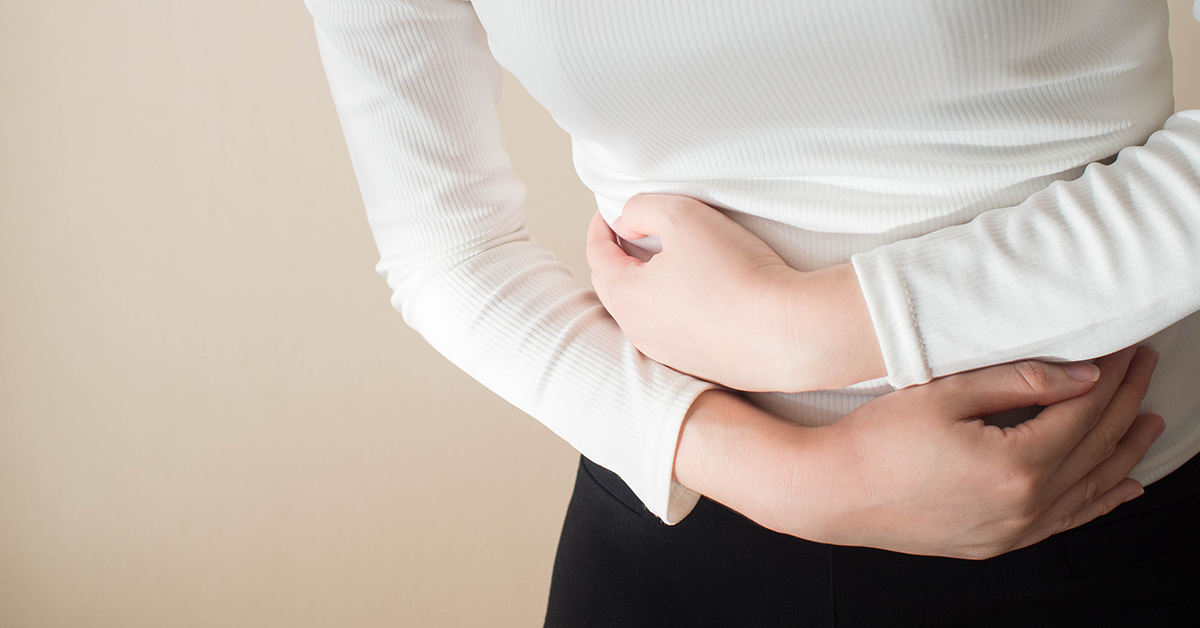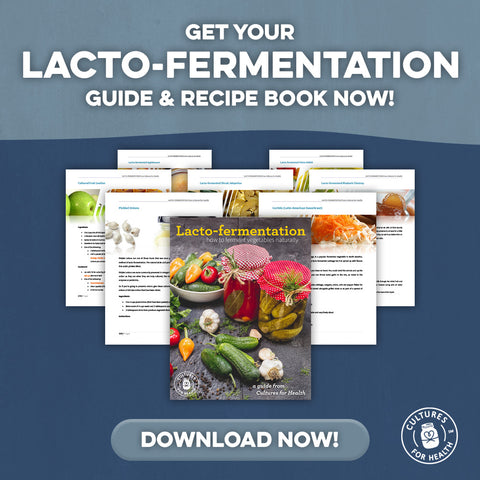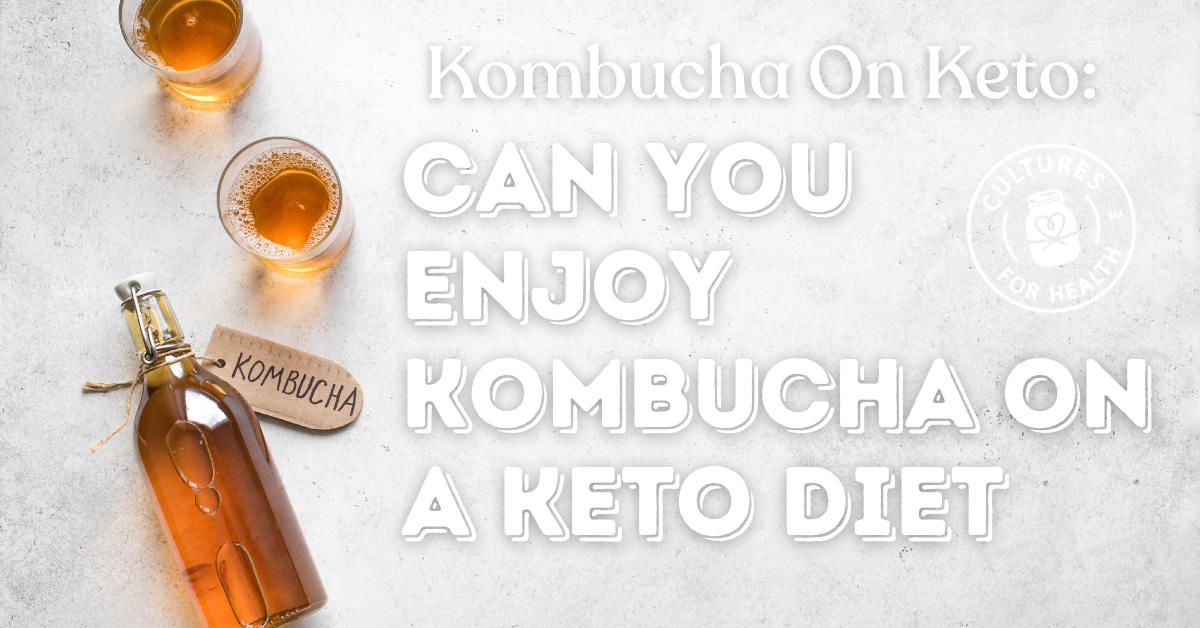
People who suffer from IBS (irritable bowel syndrome) are probably sick and tired of hearing that they need to drink more water and exercise if they want to control IBS attacks. When you are in the midst of an attack and having horrible stomach pain, the last thing you want to do is get up and take a run.
That’s why we have compiled a list of natural remedies for IBS that are more than just drinking more water and exercising. First, let’s talk about probiotics and how they can be a home remedy for IBS.
Probiotics May Be a Natural Home Remedy for IBS

Probiotics are bacteria or yeast that help to regulate gut health overall and show a lot of promise for IBS treatment at home. The good bacteria that live in your stomach are called gut flora.
Gut flora helps a ton with every stomach function, but when gut flora’s balance gets thrown off, that's when things get ugly. A decrease in gut flora bacteria allows for the bad bacteria to run rampant. Recently, IBS symptoms have been linked to changes in gut flora.
In an article by World J Gastroenterol, they have proposed 6 ways that probiotics may be able to improve IBS symptoms in some people: fighting inflammation, slowing down the growth of bad bacteria, boosting the immune system, slowing down bowel movements, and reducing gas production and gut sensitivity to gas build-up. If you suffer from symptoms of IBS, here are some ways to get good bacteria—probiotics—into your diet.
Milk Kefir is One of the Strongest Probiotic IBS Treatments Available at Home

Living with IBS, you have probably learned that dairy products can be a culprit for attacks. However, because of the culturing process yogurt and milk kefir go through, the live cultures and decreased lactose usually help more than they hurt.
The first of your natural home remedies for IBS is making and drinking milk kefir! Milk kefir is one of the strongest probiotics you can eat—it has even more probiotics than yogurt. It’s full of good bacteria, due to the fermentation.
Even though milk kefir is made with dairy, it has a significantly low amount of lactose that may be tolerable for those with lactose intolerance. Milk kefir is also known to stimulate enzymes needed to break down lactose.
Sauerkraut is a Great Source of Probiotics That Can Help with IBS

Now that you know all the benefits probiotics offer IBS sufferers, let’s talk about sauerkraut and how it can be used as a natural remedy for IBS.
According to this 2018 article, a small study was conducted to see how fermented sauerkraut impacted those with IBS. This study showed that over a 6-week period, IBS symptoms decreased in severity. They suspect this is because they were adding so many good microbes and bacteria to their diet.
A FODMAP diet may help with IBS symptoms. A high FODMAP is generally not recommended, while a low FODMAP is usually safe. Cabbage alone is typically not advised to eat for those with IBS because it has a high FODMAP, so we recommend eating sauerkraut in moderation.
Over Cultured Yogurt Reduces Lactose and Provides IBS Fighting Probiotics

If you can’t get behind milk kefir, try over-culturing homemade ayogurt starter culture! As your yogurt cultures, it loses lactose. If you over-culture your yogurt, there will be less lactose, meaning fewer stomachaches for those IBS and lactose-intolerant people.
It can be hard for those who suffer from IBS to get a good intake of probiotics, due to dairy possibly worsening symptoms, but milk kefir and over-cultured yogurt are an exception due to the good bacteria and decreased lactose.
Add Psyllium Powder to Drinks and Food To Help With IBS Treatment at Home

The next of the IBS home remedies is adding Psyllium powder to your diet. Dietary fiber also has some great benefits that could help IBS sufferers. Fiber can benefit those who suffer from IBS-C (the “C” stands for constipation). Fiber has been shown in studies to relieve patients of overall symptoms of IBS. However, foods that contain high fiber may also worsen symptoms due to other ingredients.
Psyllium powder is a fantastic way to get your fiber without any other ingredients messing with your stomach. Psyllium powder has been shown to be more effective than stool softeners and can relieve the stomach pain that results from IBS. This is also mainly due to the number of good bacteria in Psyllium powder. Even the American College of Gastroenterology suggests using Psyllium as a treatment for IBS!
How Yoga Can Be A Natural Remedy For IBS

Another one of our home remedies for IBS is yoga. According to a study in the Digestive Diseases and Sciences journal, they found that yoga helped with the majority of the participants’ IBS symptoms. Yoga doesn’t require you to run and jump around, which may irritate your stomach more; it is relaxing and helps stretch out your stomach muscles, helping to relieve symptoms like gas and bloating.
Another great benefit of practicing yoga is that it is relaxing and relieves stress. Many people with IBS express that they often feel anxious and stressed due to the pain and bloating. Be sure to always speak with your doctor before trying yoga, just to be sure it is right for you.
Alongside yoga, massages are a great way to relieve gas and bloating as well. Masseuses are highly trained professionals who know how to redirect food and repel acid towards your stomach for proper digestion through massage. Massages such as the Swedish massage can help reduce flare-ups from IBS.
TIP: Some good yoga poses to stretch and strengthen your gut muscles are the cobra and the downward dog.
Avoid Foods That Can Trigger IBS Attacks

One of the best ways to combat IBS is to know your triggers. IBS triggers are different for everyone so we recommend starting a journal and then finding commonalities between your attacks to find triggers. There are some foods, however, that most IBS sufferers can agree trigger their IBS:
- Insoluble fiber. The difference between insoluble and soluble is that soluble fiber dissolves in water, while insoluble fiber does not. Soluble fibers (such as the psyllium powder mentioned above) are usually found in beans, fruit, and oat products (which are all known to leave you gassy). Insoluble fibers can be found in supplements, whole grain products, and vegetables. So just remember, insoluble = bad, and soluble = good!
- Wheat also seems to cause trouble with those who have IBS. Gluten is a protein found in rye, wheat, and barley. Some gluten-free substitutes to try are almond and coconut powder, buckwheat, oats, and quinoa.
- Fried foods can also trigger IBS. These high-fat foods tend to be hard on digestive systems, leading to IBS symptoms like stomach pain. Grilling or oven-baking your food is a much better choice for your gut health.
- Caffeine can trigger IBS because it has a stimulating effect on the intestines. Even people without IBS know this to be true. Get your energy through food instead of caffeine!
- Lastly, avoid sugar-free sweeteners when you can. This study shows that it is much harder for the stomach to digest sugar substitutes and should be avoided by those with IBS. The better option is just to use the real stuff in moderation.

Conclusion: Home Remedies for IBS
There is no right way to prevent IBS attacks. There will be some foods you can tolerate, while someone else with IBS cannot, and vice versa. That is why we recommend journaling—to help you find what's right for your body!















